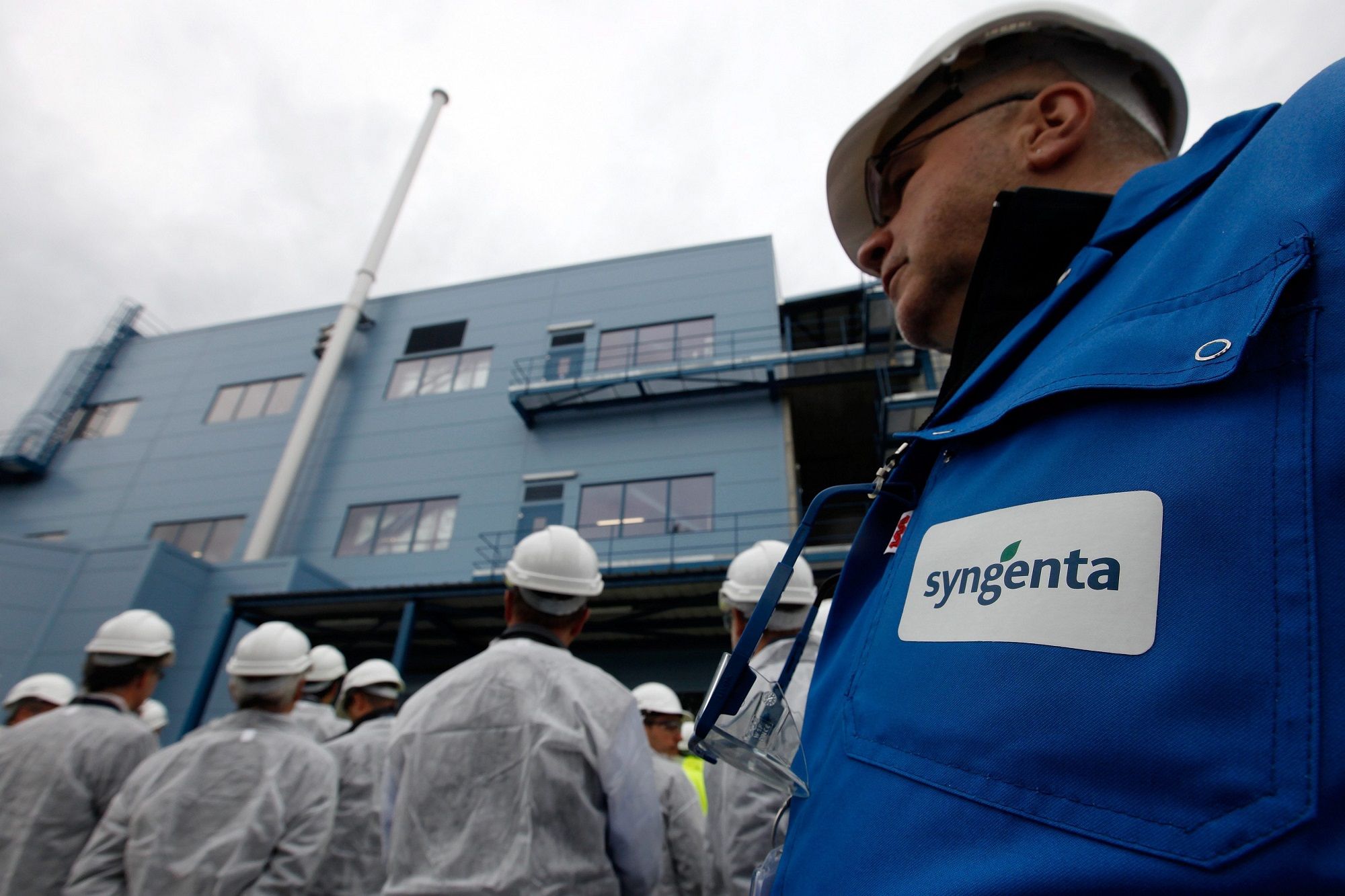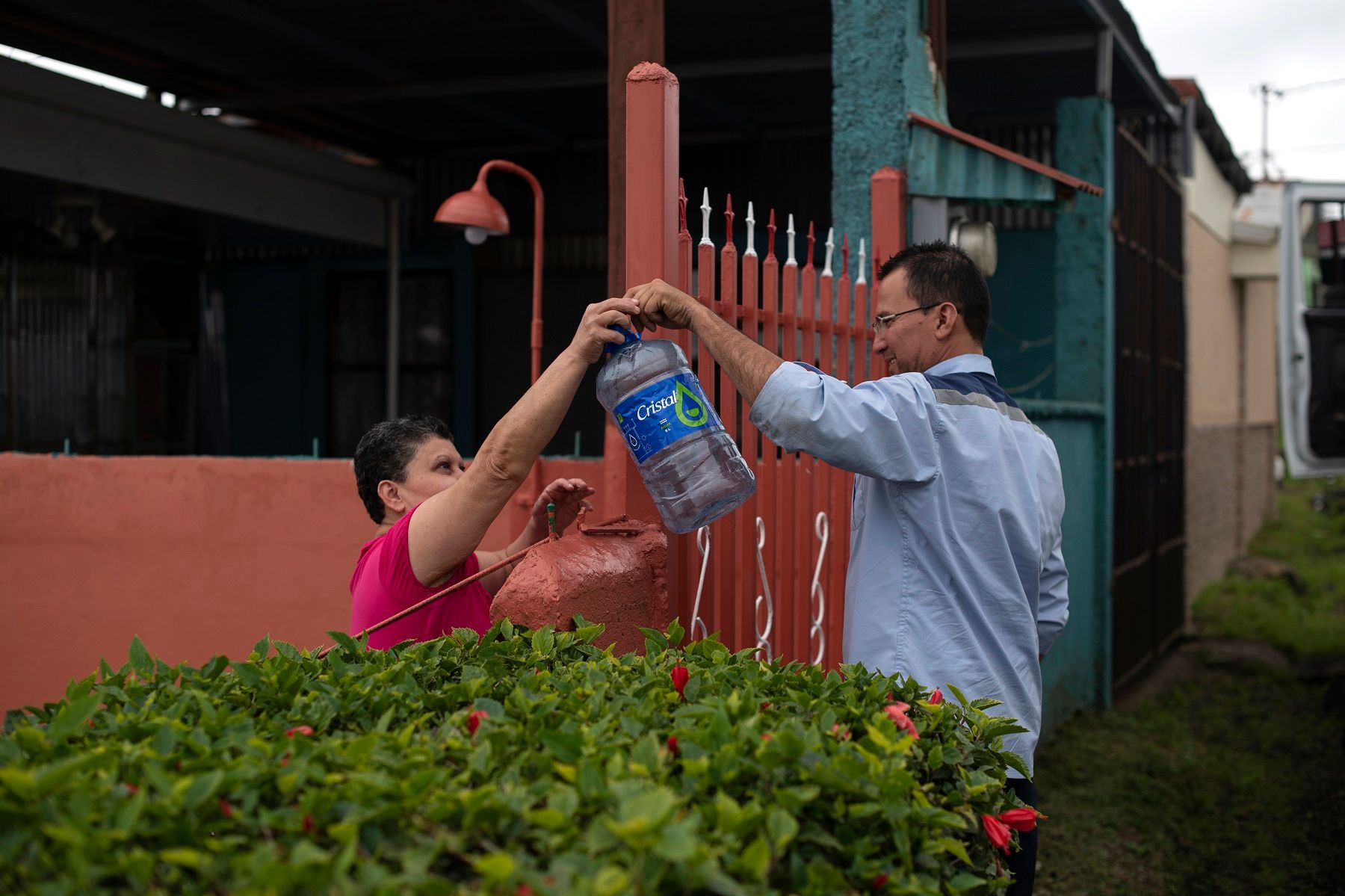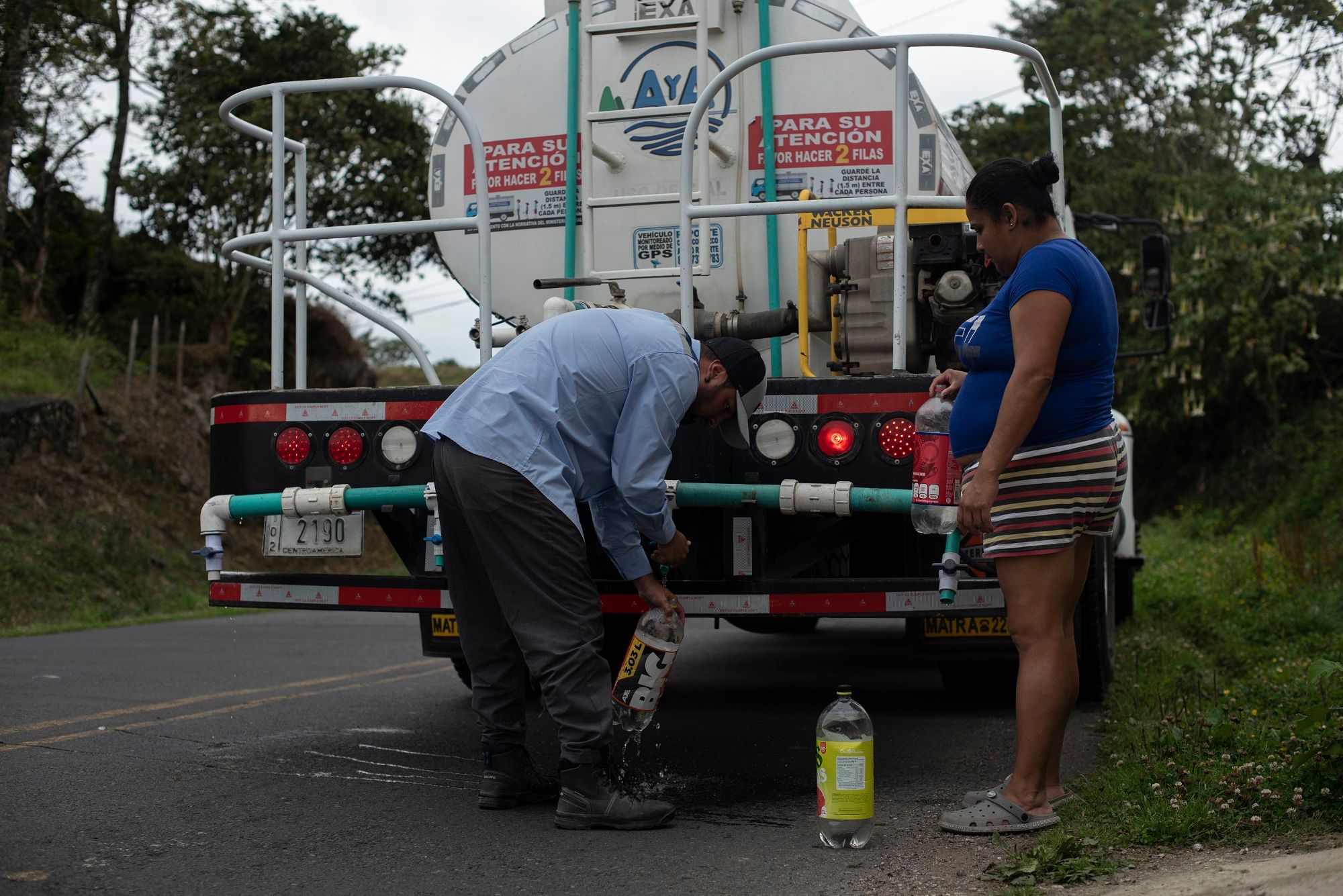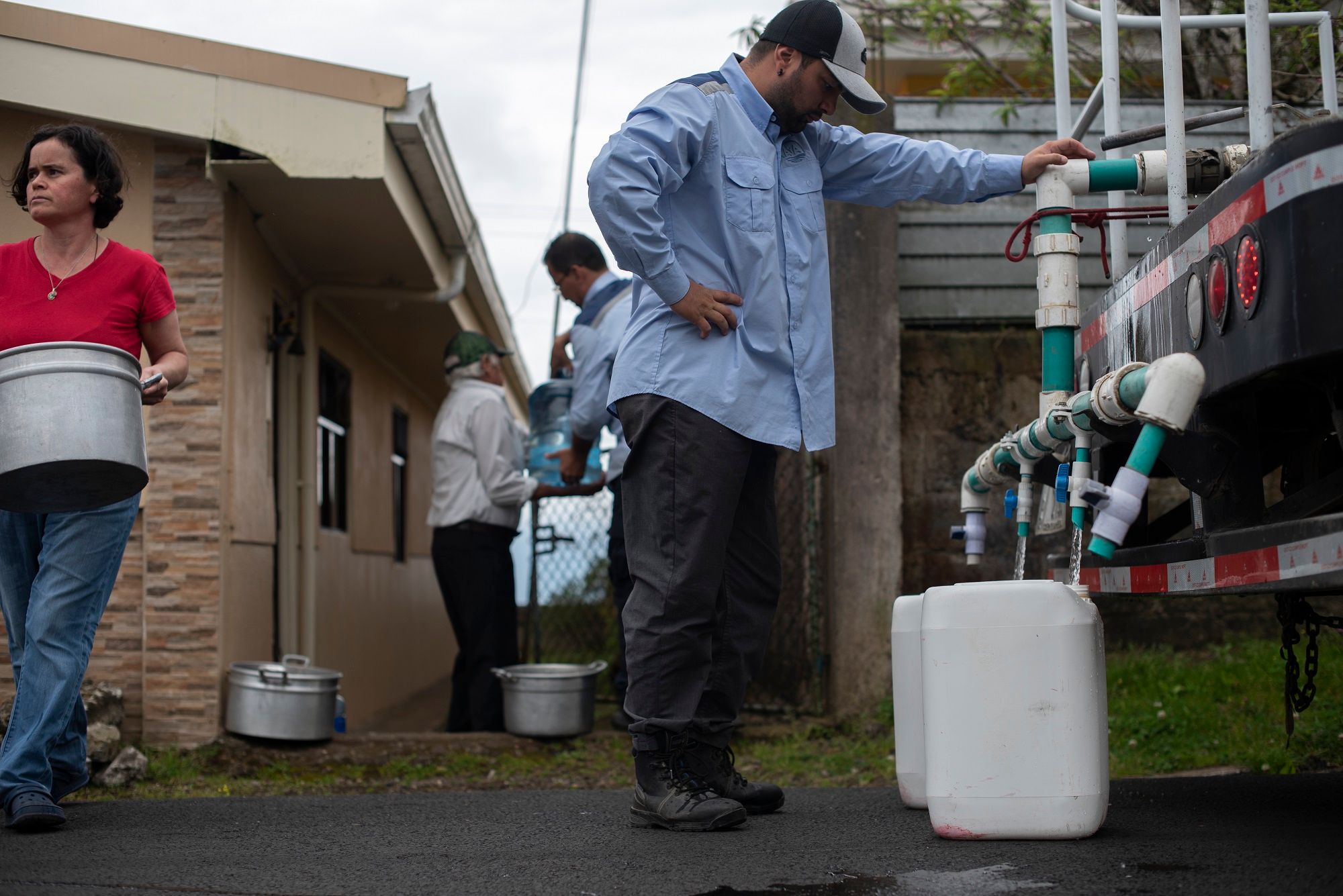Chlorothalonil: a banned pesticide exported from Europe
Laurent Gaberell, June 22, 2023

“It is a disaster such as drinking water producers have probably never come across”, wrote Le Monde on 5 April, after the release of a report by the French National Agency for Food, Environmental and Occupational Health and Safety (Anses), warning that drinking water in France is extensively polluted by metabolites of chlorothalonil. Around a third of the water distributed in the country fails to comply with quality regulations. Fixing the issue could cost billions.
In Switzerland too, chlorothalonil recently hit the headlines. According to data collected by cantonal authorities, 700,000 people are exposed to chlorothalonil metabolites in their drinking water at levels exceeding the limit value. The Swiss Plateau, which is used intensively for agriculture, is the main region affected. The Federal Office for the Environment (FOEN) has warned that chlorothalonil could “significantly impair groundwater for many years”. The cost of cleaning it up could lead to a 75% increase in the price of water.
Toxic exports
First marketed in the 1970s, chlorothalonil was for a long time one of the best-selling fungicides in Switzerland and the European Union (EU). In 2019, however, it was banned in the EU, after the European Food Safety Authority (EFSA) recommended that the substance be classified as a presumed human carcinogen and identified a “critical concern” in relation to the contamination of groundwater by metabolites of chlorothalonil - the substances created when the chemical starts to break down in the environment, which are also harmful to health. Chlorothalonil was also banned in Switzerland immediately thereafter.
 ©
Keystone
©
Keystone
Yet three years after banning it from their own fields, the EU and Switzerland are still allowing manufacturers like Syngenta to export chlorothalonil to low- and middle-income countries (LMICs), where regulations are more permissive. This is the key finding of a new investigation by Public Eye and Unearthed, based on documents obtained from European authorities under freedom of information rules. These show that in 2022, almost 900 tonnes of chlorothalonil were "notified" for export from the EU.
More than half of the shipments were destined for countries in Africa, in particular Egypt, Algeria and Cameroon, where governments do not have adequate resources to prevent environmental contamination from pesticide use. Colombia, the Philippines and Guatemala were also among the main destinations. UN agencies warn that in those countries the risk of human and environmental exposure is, “almost without exception”, much higher than in Switzerland and the EU, where the use of chlorothalonil has been banned.
Poison in the water
The EU has shipped at least 130 tonnes of chlorothalonil to Costa Rica since passing a domestic ban on its use in 2019. In this central American country, the government has to supply water to some communities by truck, after their tap water was found to be heavily contaminated by the pesticide, our investigation shows. The environment and health ministries fear that this contamination could be widespread throughout the entire agricultural region in the north of Cartago province, which is home to tens of thousands of people.
-

-
 ©
José Díaz / Public Eye
©
José Díaz / Public Eye
-
 ©
José Díaz / Public Eye
©
José Díaz / Public Eye
Swiss-headquartered agrochemical giant Syngenta was the largest exporter of chlorothalonil, accounting alone for more than 40% (almost 380 tonnes) of the volumes of chlorothalonil products notified for export from the EU in 2022. Arysta Lifescience, which is now part of the India-based multinational pesticide company UPL, Italy-based Sipcam Oxon and Cheminova, a subsidiary of US pesticide giant FMC, have also notified chlorothalonil for export in 2022 from Belgium, Italy, the Netherlands and Spain.
Switzerland is also exporting chlorothalonil, despite having banned its use on its own territory. Impossible though to know the true scale of these exports and the main destinations. Chlorothalonil is still not listed in the Swiss legislation that regulates the export of hazardous chemicals and companies are therefore under no obligation to notify their exports to the authorities. However, data obtained from European authorities show that in 2022 almost 30 tonnes were notified by Syngenta for export from the EU to Switzerland, for reexport to third countries.
Turning off the tap
But the noose is tightening on the agrochemical giants. Both Belgium and Germany, which are main EU exporters of chlorothalonil, are following the example of France and moving forward with plans for a national ban on the export of banned pesticides, although the proposed regulations face strong resistance from the industry. A banned pesticide export ban could also be adopted at EU level. The European Commission committed to bring forward concrete proposals this year to “ensure that hazardous chemicals banned in the European Union are not produced for export”. This came shortly after the publication of an earlier Unearthed and Public Eye investigation on banned pesticide exports.
The strategy faces staunch opposition from the chemicals lobby. But a public consultation has just been launched and the Commission confirmed it was still planning to present a proposal before the end of the year. Launching the consultation, Environment Commissioner Virginijus Sinkevičius said the EU “would not be consistent in its ambition for a toxic-free environment if hazardous chemicals that are not allowed for use in the EU can still be produced here and then exported”.
The lobbies have therefore not yet won the day. And the European Parliament and Member States have in their hands another Commission proposal, which aims to enshrine in law an obligation for companies to respect human rights and the environment when operating abroad. These new rules - provided they apply to the entire value chain, including the use of products - could force pesticide companies to take seriously the risks associated with the use of their products in poorer countries. Another thorn in the side of the agrochemical giants.

